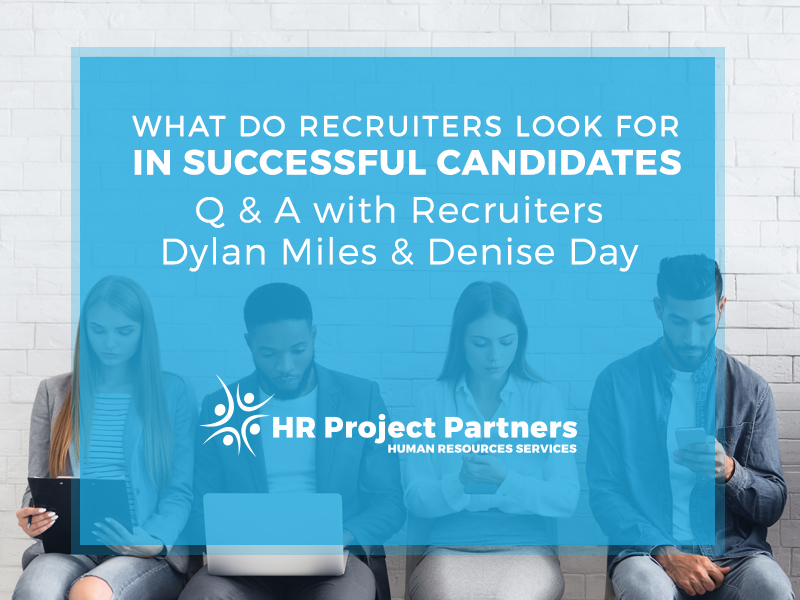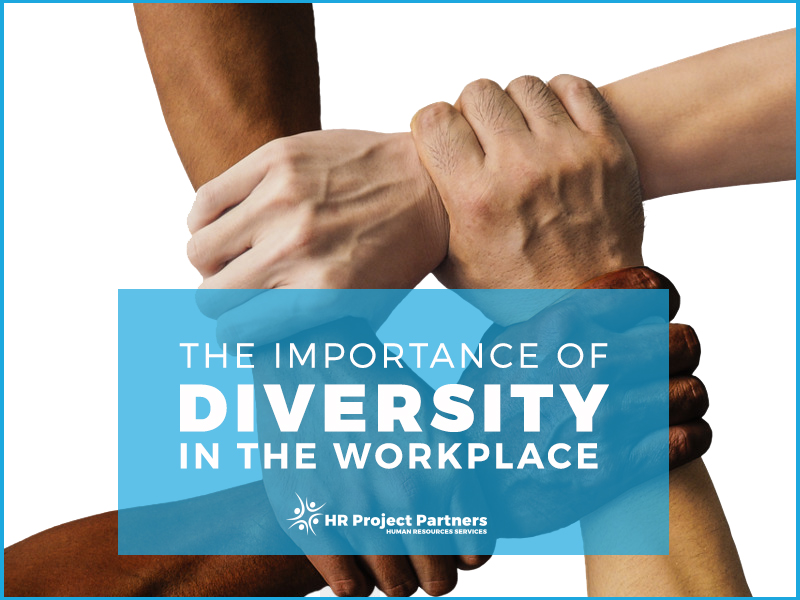Here at HR Project Partners (HRPP) recruitment is a vital part of our daily operations. For us to find the most suitable candidates for our clients we need our recruitment team to be effective and knowledgeable. We have put together a Q&A with our HRPP recruiters, Dylan Miles, and Denise Day, to shed some light on what they look for in a successful candidate, as well as provide some insight into what makes a successful candidate.
Introduce yourself – What is your career background? What is your favorite part of recruitment?

Dylan:
I graduated with a Diploma in Business Management – Human Resources from the College of the North Atlantic, and I am working towards completing my Business Administration Degree at Memorial University. I am also a Registered Professional Recruiter (RPR) with the IPM Management Training and Development Corporation.
I joined the HR Project Partners team in 2019. I bring a proven history of success in Recruitment, Account Management, Sales, Onboarding, Training and Development, Compliance Auditing, and Personnel Management. My experience includes full-cycle recruitment and have supported various industries throughout my career, including: Mining, Engineering, Oil and Gas, Marine, Heavy and Light Industrial, and Office Clerical.
I find Recruitment very rewarding. I enjoy working to build collaborative, respectful relationship with colleagues, clients, and candidates. It is a passion of mine to help others and to have a positive impact. I feel like recruitment allows me to do this.

Denise:
I am a bilingual talent recruitment and acquisition professional with more than 10 years’ experience executing recruiting plans. I joined HRPP in 2020. I have managed all phases of full-cycle recruiting, from initial sourcing and interviewing through offer negotiations, placement, and onboarding. I am a recruiting professional with the ability to build strong relationships with hiring managers and candidates in every field. I am a people person and a team player.
I studied Psychology at John Abbott College. In 2005, I started my career in recruitment in a small placement agency which consisted of myself and the owner. In the 4 years that I worked there, I wore many hats and acquired experience and knowledge which lead to the growth of the business and office staff. I then moved on and spent the next few years working in other opportunities. In 2014, I returned to my first love and have been recruiting more technical roles such as Engineering and IT in several different industries across Canada and the U.S.
My favorite part of recruitment is people and building relationships. I enjoy the opportunity to help people start/improve/advance their careers. Still to this day, I get excited when I say, “you got the job!”.
What platforms would you recommend that people use to discover new job opportunities?
Dylan:
The majority of our postings at HRPP are advertised through websites like Indeed.ca, however social media such as LinkedIn is also a great resource. I would also recommend keeping an eye on job banks and websites of companies that you are interested in working with. A lot of websites, including HRPP’s, have the option to sign up for email notifications which is a great tool to ensure you never miss out on an opportunity.
What are some factors that make candidates stand out among the others when you are searching for a suitable match with an employer?
Denise:
While sourcing for candidates, the first thing would be keywords in their resume. When screening it would be someone who has strong communications skills; seems passionate about their work and energetic; always responds to calls and emails; is professional and shows up to client interviews.
What are some suggestions you would give to people who are preparing for interviews?
Dylan:
Interviews can be daunting; however, I believe if you are confident and fully-prepared, it makes all the difference. Some suggestions I have on preparing for an interview are:
- Be knowledgeable on the company you are interviewing with. Spend some time researching the organization and familiarizing yourself with their mission, vision and/or values.
- Review the job description and compare your resume to this for an understanding of how your experiences relate specifically to this role.
- Listen carefully and be engaged during the interview.
- Prepare a list of your own questions specifically related to the role, details of the opportunity, and/or further information on the organization.
- Think positive and always end on a positive note. A positive mindset is extremely important, in my opinion.
What are some suggestions you would make to people that are developing a resume?
Denise:
While there are many resume formats that can be used, I think simple is the best. I would suggest starting with strong objective action words in your summary. Then tailor your resume to the job offer using keywords and making sure it is brief and to the point (2-3 pages).
Do you have any tips on how someone can ensure success in a new position?
Denise:
Understand expectations. Get to know the people you work with. There is always a learning curve so don’t assume anything and ask questions. Create a good work practice. Be reliable and stay true to your word. Your reputation follows you.
What is one piece of advice you would give to someone that is starting their career?
Dylan:
My advice to someone that is starting their career or trying to decide the right career path for them, is to find your passion. You want to pursue a career that you will find rewarding and fulfilling. It is also beneficial to connect with others that are in similar roles and look to them as mentors. More than likely, they will be willing to provide some guidance and answer any questions you might have about the industry/career choice. This insight will be helpful. Soak up whatever advice they offer. There are also lots of great networking events to attend to become familiar with like-minded people. Connection is key, and you never know what that connection might lead to.
It is also important to gain as much experience as you can when starting out. This may be obtained from internships, work-terms, volunteer experience, etc. Experience is valuable and I would take advantage of all of it. It is important to search for the value in feedback and/or constructive criticism as well. This is meant to help you grow – take it and learn from it. It is also important to ask for help, if needed.
And lastly, do not give up. Keep working hard and keep your eye on the prize. You can achieve what you set your mind to through hard work and dedication.




